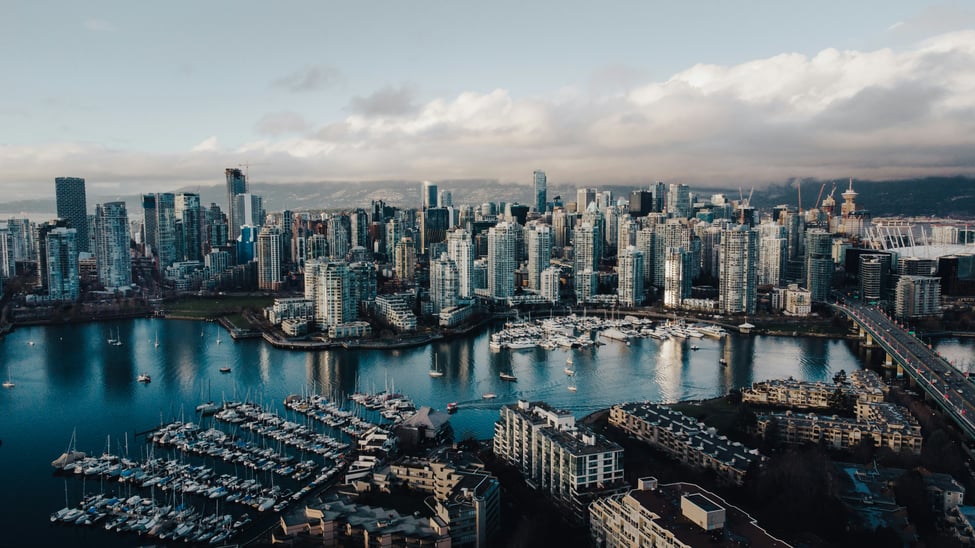Unlocking the Mysteries of Vancouver’s Empty Homes Tax: What You Need to Know
Hello, fellow Vancouverites! Brace yourselves for a new fiscal frontier – the Empty Homes Tax has arrived, and it’s making waves in the real estate landscape of our beautiful city.
In this blog post, we'll delve into the ins and outs of the Empty Homes Tax, shedding light on its implications for current property owners in Vancouver. Buckle up, as we explore the key aspects that you need to be aware of.
1. The Empty Homes Tax Unveiled
The Empty Homes Tax, implemented by the City of Vancouver, is an annual levy on residential properties deemed empty or underutilized. This tax targets Class 1 Residential properties, encompassing single-family residences, multi-family residences, duplexes, apartments, condominiums, and more.
2. Crunching the Numbers: How Much Is the Tax?
Properties falling under the empty or underutilized category will face a tax equivalent to 1% of the property's assessed taxable value. This tax is applied annually, and payment dates change yearly so be sure to confirm when this is due if unsure. Any unpaid taxes will be added to the property tax bill by year-end. Refer to the end of the blog to a link that will give you this year's info.
3. Declaration and Deadlines
Owners of Class 1 Residential properties are required to make a property status declaration for the preceding calendar year. The declaration, date changes yearly so be sure to check the sixty of Vancouvers website for details, details below. Failure to declare results in penalties and the property being deemed vacant, triggering the tax.
4. Defining "Vacant" or "Empty"
Properties unoccupied for more than 180 days during the tax year (Jan 1 – Dec 31) are considered vacant and subject to the Empty Homes Tax. Principal residences, where owners usually live and conduct daily affairs, are exempt.
5. Navigating Second Homes and Exemptions
a. Principal Residence but not Occupied:
If a property is the owner's principal residence but they spend over 180 days elsewhere, the tax does not apply.
b. Not a Principal Residence but Occupied:
If an owner resides in their property for over 180 days but it's not their principal residence, the Empty Homes Tax applies.
c. Second Home for Work:
The tax doesn't apply if the owner's second home is in Vancouver for work, occupied for at least 180 days.
d. Principal Residence of Family Member:
No tax if the property is not the owner's principal residence but is for a family member or friend for at least six months.
6. Rental Property Rules
The Empty Homes Tax applies if the property isn't rented for at least six months in periods of 30 consecutive days. Owners are encouraged to adjust rental costs to find tenants.
7. Continuous Parcels and Exemptions
Adjacent parcels treated as one residence won't be taxed if used as a principal residence, rented for over six months, or exempted. Random audits may occur for such exemptions.
8. Various Exemptions Explained
From court orders to strata restrictions, various exemptions exist, including properties under construction or listed for sale. Owners must provide evidence for exemptions during the audit process.
9. Audit Alert!
False declarations may result in fines. Property status declarations can be audited for up to two years after a tax year, requiring owners to provide supporting evidence.
10. Top Tips for Navigating the Empty Homes Tax Maze
- File the declaration before the due date to avoid hefty consequences.
- Seek assistance from the City of Vancouver if in a gray area.
- File declarations truthfully to avoid potential audits and penalties.
- Stay informed about changes to the Empty Homes Tax.
Remember, for the most current information, always refer to the City of Vancouver website: Empty Homes Tax
In case of any hiccups during the declaration or suggestions for improvement, reach out to the City of Vancouver. Stay informed, stay compliant, and let’s navigate the Empty Homes Tax terrain together!
.png)
